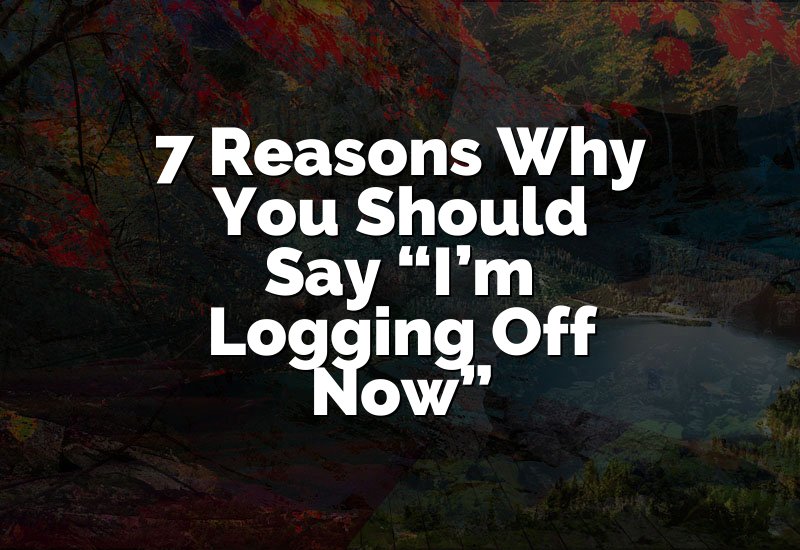Getting insulted can feel really bad, like someone just hit you with a mean word. But don’t worry, because there are ways to handle insults without feeling crushed. In this blog post, we’re going to talk about how to respond when someone insults you.
First off, it’s important to remember that insults often come from a place of insecurity or anger from the person saying them. So, don’t take it too personally. Instead, stay calm and try not to let it get to you.
We’ll explore some strategies you can use to respond to insults, like using humor to deflect the negativity or calmly confronting the insulter. It’s also crucial to remember your own worth and not let insults define you.

Understanding The Power Of Words
Understanding the Power of Words empowers you to effectively respond to insults. Discover valuable techniques to maintain composure and deflect negativity without resorting to harmful words. Your response will not only diffuse the situation but also showcase your emotional intelligence.
The Impact Of Insults
Insults have the power to wound, leaving lasting emotional scars that can affect our self-esteem and confidence. Words carry immense weight, capable of evoking strong emotions and influencing our thoughts and actions. Whether delivered in person, online, or behind our backs, insults have the potential to harm and demoralize.
Why Responding Is Important
When faced with insults, our instinct might be to retaliate or withdraw. However, it is crucial to understand that our response determines the outcome of the situation. By choosing how we react, we can either diffuse the tension or escalate the conflict. Taking control of our response allows us to maintain our integrity and self-respect.
Here are a few reasons why responding to insults is important:
- Empowers you: By responding to insults, you take charge of the situation and assert your worth. It reinforces your self-esteem and shows that you won’t allow others’ negative words to define you.
- Breaks the negativity cycle: Responding calmly and assertively to insults can disrupt the cycle of negativity. It can prevent further insults and discourage others from engaging in hurtful behavior.
- Education and understanding: Responding to insults can create an opportunity for education and understanding. By addressing the issue, you can help the other person recognize the impact of their words and promote empathy.
Remember, responding to insults doesn’t mean stooping to their level. It means choosing a path of integrity, asserting your self-worth, and taking control of the narrative. Understanding the power of words can empower you to respond effectively and confidently to insults, ultimately leading to personal growth and positive outcomes.
Respond to Insults: 26 Easy and Effective Tips
- Stay calm: Take a deep breath and try not to react impulsively.
- Ignore it: Sometimes, the best response is no response at all.
- Agree with humor: Agree with the insult in a playful way to disarm the situation.
- Change the subject: Shift the conversation away from the insult.
- Use humor: Respond with a witty remark or joke to lighten the mood.
- Respond with kindness: Show kindness even in the face of negativity.
- Assert yourself: Politely stand up for yourself and express how the insult made you feel.
- Ask for clarification: Sometimes insults come from misunderstandings, so ask for clarification.
- Give a nonchalant response: Brush off the insult casually.
- Respond with confidence: Project confidence in yourself and your abilities.
- Use reverse psychology: Thank the person for their feedback in a sarcastic manner.
- Agree and amplify: Take the insult to an extreme level to show it doesn’t affect you.
- Educate: Politely explain why the insult is inappropriate or untrue.
- Focus on the positive: Redirect the conversation to something positive about yourself or the situation.
- Use “I” statements: Express how the insult makes you feel using “I” statements.
- Show empathy: Try to understand where the insult is coming from and respond with empathy.
- Set boundaries: Let the person know that insults are not acceptable behavior.
- Offer a compliment: Respond with a genuine compliment to diffuse the tension.
- Use sarcasm: Respond to the insult with a sarcastic comment.
- Remain silent: Sometimes silence speaks volumes.
- Use a clever comeback: Respond with a clever comeback that shows you’re not bothered.
- Express gratitude: Thank the person for their opinion, even if it was hurtful.
- Stay true to yourself: Don’t let insults change how you see yourself.
- Use humor to deflect: Laugh off the insult and make a joke about it.
- Take the high road: Respond with maturity and grace.
- Walk away: Sometimes the best response is to simply walk away from the situation.
Also Read: 16 Best Responses to Flirting
Reacting Vs Responding
Understanding The Difference
Reacting and responding may seem like similar terms, but when it comes to dealing with insults, understanding the difference between the two can make a world of difference. Reacting is often fueled by emotions and immediate impulses, whereas responding involves taking the time to reflect and formulate a thoughtful and composed reply. It's all about choosing the higher road and maintaining your dignity, regardless of the situation.
Benefits Of Responding
When faced with insults, responding rather than reacting can bring about several benefits. Firstly, it allows you to maintain control over your emotions and demonstrate maturity. Instead of stooping to the level of someone who insults you, responding allows you to rise above such negativity.
Additionally, responding allows you to address the issue constructively. By taking the time to think before responding, you can choose your words carefully and present your thoughts clearly and logically. This can lead to a better understanding and potentially resolve the conflict or misunderstanding at hand.
By responding instead of reacting, you also reduce the risk of escalating the situation. Reacting impulsively to insults can quickly escalate into an unnecessary argument or altercation. On the other hand, responding calmly and thoughtfully can help defuse tension and promote a more peaceful resolution.
Moreover, responding to insults in a composed manner can help preserve your reputation. When you respond with grace and dignity, others will perceive you as someone who can handle difficult situations with maturity. This can enhance your personal and professional relationships, as people are more likely to respect and admire individuals who remain calm and composed in the face of adversity.
Effective Strategies For Responding To Insults
Dealing with insults can be challenging, as it can often stir up negative emotions within us. However, it is essential to maintain our composure and respond in a way that diffuses the situation and preserves our self-respect.
Take A Deep Breath And Remain Calm
In the face of an insult, our instinctive response might be to retaliate immediately. However, reacting impulsively can often escalate the situation further. Instead, take a deep breath and consciously maintain your composure.
Remember, staying calm sends a powerful message that your emotions are not easily ruffled. It allows you to respond thoughtfully and avoid saying something you may regret later.
Use Humor And Wit
One effective strategy to respond to insults is by using humor and wit. Injecting a lighthearted comment or a clever remark can catch the insulter off guard and defuse the tension.
By finding a clever way to respond, you demonstrate your resilience and show that you are not easily affected by their insults. It also helps shift the focus away from the negativity and towards a more positive direction.
Your humorous response can be as simple as a witty comeback or a playful remark that flips the situation around. Just make sure to keep it light and avoid crossing any boundaries.
Empathy And Active Listening
Another effective approach to responding to insults is by showing empathy and actively listening to the insulter. Sometimes, insults stem from underlying frustrations or personal issues.
By empathizing with their feelings and actively listening to their grievances, you demonstrate a willingness to understand their perspective. This can sometimes diffuse their anger and create an opportunity for a constructive dialogue.
Engage in active listening by giving them your undivided attention, maintaining eye contact, and acknowledging their feelings. Respond to their concerns with empathy and kindness, which might help them see that their insults are unwarranted or misguided.
Remember, responding to insults is not about stooping to the insulter’s level but about maintaining our dignity and defusing the situation. By taking a deep breath and remaining calm, using humor and wit, and responding with empathy and active listening, you can navigate insults gracefully while preserving your self-respect.
See Also: 32 Fantastic Ways to Respond to Yo
Self-reflection And Personal Growth
Developing Emotional Resilience
Self-reflection and personal growth go hand in hand when it comes to responding to insults. Developing emotional resilience is key to navigating challenging situations and emerging stronger. It involves building the ability to bounce back from insulting remarks without letting them affect your self-worth or confidence.
Emotional resilience doesn’t happen overnight. It’s a skill that can be cultivated over time. One way to develop this skill is by consciously practicing self-care and self-compassion. Prioritizing your mental and emotional well-being helps build a solid foundation for handling insults. Take time to engage in activities that bring you joy and relaxation, whether it’s reading a book, going for a walk in nature, or spending time with loved ones.
Another aspect of developing emotional resilience is learning to regulate your emotions. Take a step back and pause before reacting to an insult. By taking a moment to breathe and assess the situation, you can respond in a calm and collected manner. Remember, you have control over your emotions, and choosing how to respond is within your power.
Learning From Each Encounter
Every encounter with an insult is an opportunity for growth and learning. Instead of dwelling on the negativity, shift your focus to what you can gain from the experience. By reframing insults as opportunities for personal development, you can turn them into catalysts for positive change.
One way to extract value from insults is through self-reflection. Ask yourself why the insult got to you and what it says about your insecurities or vulnerabilities. By identifying areas for improvement, you can work on addressing them and becoming a stronger, more resilient individual.
Additionally, consider the intentions behind the insult. Was it driven by jealousy, ignorance, or simply an attempt to bring you down? Understanding the source can help you detach from the negativity and nurture a sense of empathy towards the insulter.
Learning from each encounter also involves recognizing your own worth and building self-confidence. Surround yourself with supportive and positive influences, and engage in activities that boost your self-esteem. By focusing on your strengths and achievements, you can develop a mindset that is resilient to insults.
Final Words
Remember, responding to insults is a skill that can be honed with practice and self-awareness. By adopting the strategies outlined you can learn to navigate these difficult situations with grace and confidence. Instead of reacting defensively or engaging in a verbal battle, choose to respond assertively, empathetically, and respectfully.
Remember, your self-worth does not depend on someone else’s words. Your ability to rise above insults is a powerful testament to your character and strength. Embrace the opportunity to grow and develop a more resilient mindset.









